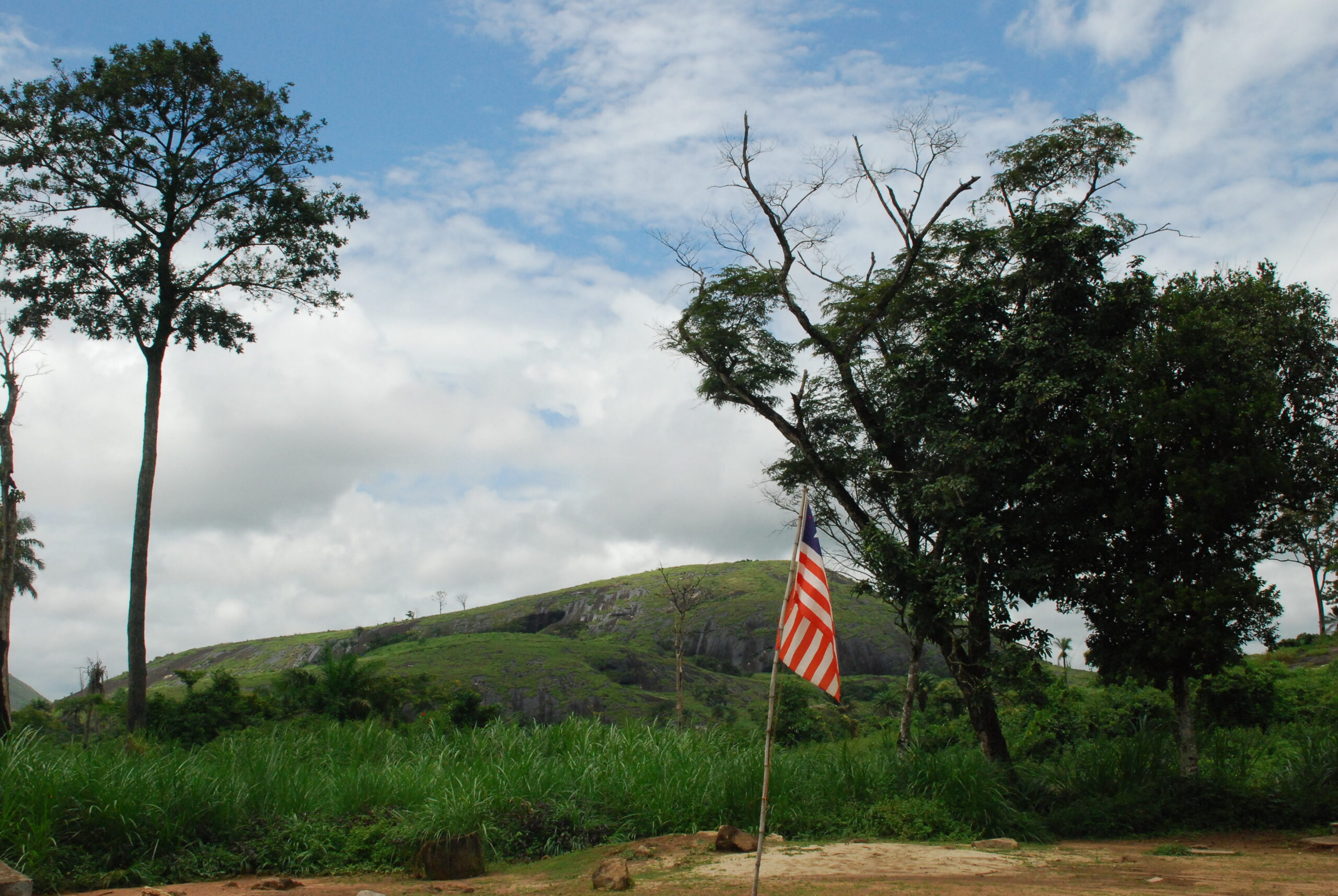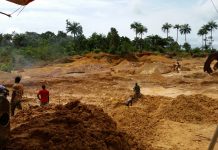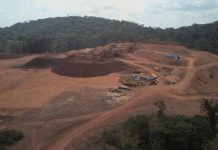Banner Image: A mountain range in Foya, Lofa County. The DayLight/James Harding Giahyue
BY James Harding Giahyue
MONROVIA – More than 10,000 villagers who allege being harmed by Bea Mountain Mining Corporation’s New Liberty Gold Mine in Kinjor, Grand Cape Mount County, have had their complaint accepted against the German and French national development banks – DEG and Proparco – for their involvement in the project.
In their complaint they filed in February and reviewed by the banks’ Independent Complaints Mechanism in July, the villagers accuse the mining company of taking their homes and farms, polluted their water, and breaking promises to provide jobs, schools and other facilities. The villagers are represented by 21 townspeople from five villages.
“The complainants allege that they have suffered substantial harm from resettlement from the area where the mine was established, from environmental impacts and impacts from river diversion,” the Independent Complaint Mechanism said. “Allegedly serious harm was caused through the release of harmful chemicals between December 2015 and June 2016.”
DEG and Proparco have direct links to the western Liberian mine through their investments FirstRand, a commercial bank in South African. The Independent Complaints Mechanism of the development banks will now seek to bring the mine’s owner, Avesoro Resources, into a formal mediation process with the complainants, who are supported by Liberian and international nongovernmental organizations, including Rights and Rights Foundation, Foundation for Community Initiatives, Society for the Conservation of Nature Liberia, Inclusive Development International, Oxfam Novib and SOMO.
“We have been neglected by the mining company,” explained a community leader, whose identity is being kept anonymous due to fear of reprisals, in a release issued on Monday by the NGOs. “We were taken from our land without any good reward, and our land and water polluted while the company refused to fully address the problems. Our livelihoods – farming and artisanal mining – have been disrupted by the company, and we are suffering from food insecurity and unattended health problems. We hope that the complaint process will help restore our livelihoods and hold the company to its promises.”
Liberia, which is rebuilding following years of civil war, has sought to attract foreign investment. But gold mining projects have been controversial. In March 2016, the New Liberty Gold Mine in Grand Cape Mount County spilled cyanide and arsenic into a river that people rely on for fish and drinking water. The International Finance Corporation (IFC), part of the World Bank, pulled its investment in the project after the accident. Following a visit by President George Weah last year, the company has recently embarked on several long-overdue community infrastructure improvement projects. The Independent Complaints Mechanism’s mediation process offers a unique opportunity to support the Liberian government’s efforts to ensure that the project brings promised benefits to local communities.
“The admissibility decision brings hope to the people who have suffered neglect and injustice for so long,” the release quoted Liberian advisors to complainants, whose identities are being kept confidential over reprisal. “We see this process as a unique opportunity to initiate a formal mediation between the affected communities and the company, and we ask the Liberian government to support the process to ensure that it will produce a just outcome.”
Major consumer brands such as Apple, Macy’s, IBM and Canon disclose that they sourced gold from Liberia in their most recent conflict minerals reports to the U.S. Securities and Exchange Commission. There are only two commercial goldmines in Liberia, and both are ultimately owned by the MNG Group of Turkey, which is controlled by the billionaire Günal family.
“This case shows once again how big brand companies and development institutions alike are failing to perform human rights due diligence on their investment and supply chains,” said David Pred, Executive Director of Inclusive Development International. “We are calling on FirstRand, the European development banks and the retail and technology companies that source gold from New Liberty to ensure that Avesoro engages in good faith mediations with the communities to resolve their long-standing grievances.”
The complaint is the first to be admitted by the Independent Complaints Mechanism involving a so-called financial intermediary. Development banks, including DEG and Proparco, are increasingly outsourcing their money to financial intermediaries such as commercial banks, which then invest it onward, often with little oversight.
DEG and Proparco have been lending money to FirstRand Bank of South Africa for years. International best practices require banks like FirstRand to apply strict social and environmental standards to all of their high-risk clients, no matter their size or location. FirstRand participated in project loans of $110 million to develop New Liberty while it was a client of DEG and Proparco, the release said. The Independent Accountability Mechanism found that FirstRand should have applied DEG’s and Proparco’s social and environmental standards, accepting the New Liberty complaint on the basis of the development banks’ portfolio-wide approach to financial intermediaries – a first in development finance accountability.
“This decision creates a vital opportunity for the Liberian communities to secure redress for the terrible impacts they have suffered as a result of the New Liberty mine,” said Sarah Singh, senior legal and policy associate at Inclusive Development International per the release. “The decision to accept the complaint on the basis of the banks’ portfolio-wide approach also establishes an important precedent that opens the door to remedy for any community that has been harmed by companies supported by the financial intermediaries of the European development banks.”
FirstRand Bank is also an ongoing financial intermediary of the Dutch development bank FMO but the Independent Complaints Mechanism dismissed the complaint against the Dutch bank on technical grounds.
Two other banks joined FirstRand in financing the New Liberty Mine. Nedbank, a South African commercial bank that is a signatory to the Equator Principles, co-financed the deal, while the South African government’s export credit agency, ECIC, guaranteed it.





Facebook Comments